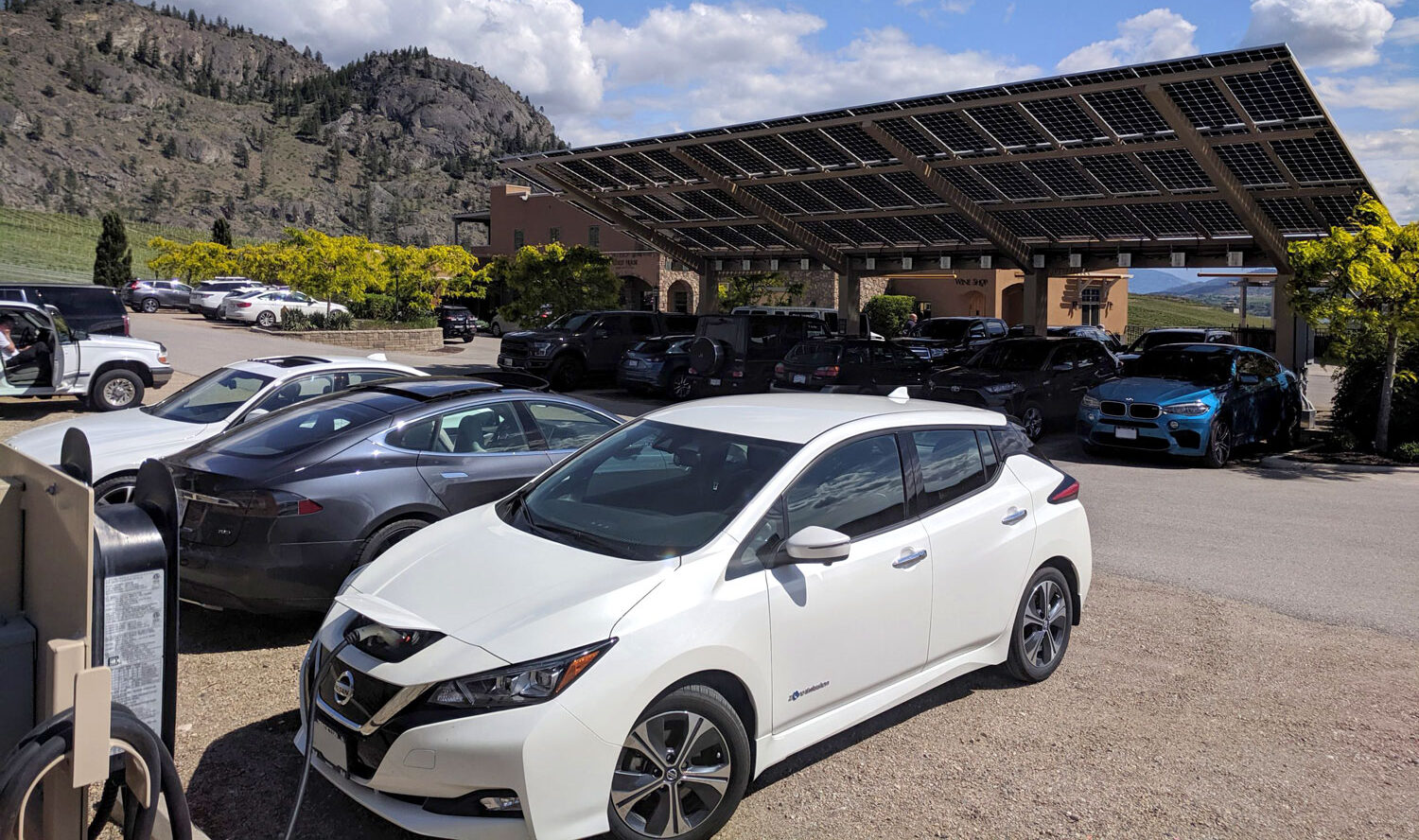The EV Total Cost of Ownership
If you pay attention to vehicle advertising in this day and age, much of the buying process is focused on leasing and financing rates. The perception of offering the “best deal possible” by financing the vehicle at the lowest biweekly or monthly rate, ensures that the customer has maximum paycheck to paycheck cash flow. There little or no mention of other factors and how they play into your total costs of vehicle ownership. In our opinion, these factors should be considered and brought to the forefront of the sales process discussion.
Here we discuss Total Cost of Ownership (TCO) and how it relates specifically electric vehicles.
What is Total Cost of Ownership? This is a term that describes the overall ownerships costs for an item, in this case a vehicle. In this calculation you may would include items such as:
1. Vehicle cost
2. Financing cost
3. Fuel consumption and EV Charging
4. Servicing and maintenance cost
5. Consumables
6. Depreciation
Why is the TCO of an electric vehicle lower than that of an ICE vehicle?
The cost of a typical electric vehicle is more than a similarly equipped ICE vehicle, but the gains in fuel savings, incentives and servicing are huge. The total cost of ownership of many EVs is less that their ICE cousins. There are a few resources online that provide insight into the payback of higher initial purchase price of a Battery Electric Vehicle vs ICE. Furthermore, it’s important to understand how quickly you will break even / pay back the higher cost of the initial purchase of an EV. As a good example check out this amazing data table from the Kootenay EV Family.
Incentives
Currently there are up to $14,000 of incentives for the purchase of a new battery electric vehicle in BC. $3,000 in Provincial Incentives, $6,000 if you are scrapping an old vehicle and $5,000 from the Federal Government.
We are experiencing incredible EV sales growth in this market, it is an inaccurate measure of consumer demand because of the purchase incentives that influence buying decisions. Many argue that purchase incentives are still necessary for rapid EV adoption for years to come, but is that true in BC? EVs make so much sense for this region, with low electricity prices, expansion of charging infrastructure and mild climate, BC seems to be the ideal place for EV growth.
Fuel vs electricity
The price of fuel in our region is one of the highest in North America. While it fluctuates during different times of the year, filling your vehicle and fuel consumption is a major cost you should be considering.
Truck lovers may be sporting big chrome and suspension lifts, but a gasoline F150 will cost about $3,000 a year in fuel alone and it can be crippling if you have a longer than normal commute. On the other hand, electricity is on average $0.08c to $0.12c a kWh so charging up our Chevy bolt costs about $5.00 at home. Check out this hand cost calculator tool on the BC Hydro EV website
One of things you may want to factor into the total cost of ownership is your EV charging infrastructure. There are some great EV charging incentives available through BC Hydro for Condo, Workplace and residential buildings. A full breakdown of eligibility criteria can be located online at this link. The program website and online application form is located at this link.
Servicing
EV’s require significantly less maintenance than ICE vehicles and typically need to go to the dealership annually for battery diagnostics, cabin filter change, fluid flush, brake check and tire rotation. Servicing costs for each vehicle will vary by model and from dealership to dealership. Dealers charge anywhere from $99-$200 for this annual service depending on what work needs to be done. Gone are oil changes, plug, filters and a host of moving parts. Most EV batteries have a 8yr or 160,000km warranty.
Depreciation
Again depreciation varies by model and age of your electric vehicle. Older EV’s saw a major drop in resale value which has been a stoking point for the Anti EV crowd. Older EV’s struggled with limited range and battery technology that was questionable at times (We are talking to you Nissan) The reality is, the last 2 years have seen significant leaps in battery tech, thermal management is technology that has revolutionized the way we take care of our batteries, and overall battery ranges are touching the 500km mark.
Reports will tell you that EV’s are big depreciators and that you should not buy them as you will lose so much value on resale. Reports will also tell you that you will also see massive depreciation on many if not most of the BMW, Infiniti, Cadillac, Lincoln, Mitsubishi, Mercedes and Audi products, and that doesn’t deter people from buying those vehicles. The positive side of this final point is that, if you capitalize on sales incentives, home charging and run your EV for up to 10 years you will get the most out of it financially.
Total Cost of Ownership of an EV in many cases (model dependent) could be less than an internal combustion engine vehicle and should be a factor in your buying decision.
If you are interested in installing EV charging infrastructure in in your Multi Unit Residential Building, workplace or single family home, call Cielo Electric for a fully comprehensive site assessment. Ph: 778-862-4109 or visit www.cieloelectric.ca



